2 min read
Gospel-Centered from the Start
“Let us hold unswervingly to the hope we profess, for He Who promised is faithful…Jesus Christ is the same yesterday, today, and forever.” (Hebrews...
2 min read
Merrily Roe, former staff writer
:
February 27, 2015
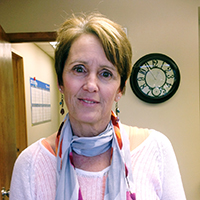 In the first part of this interview with UGM LIFE Recovery Counselor Jan Vetter, she described depression and the role it can play in addiction and suicide. Now, Jan explains how the UGM counselors address depression in their clients.
In the first part of this interview with UGM LIFE Recovery Counselor Jan Vetter, she described depression and the role it can play in addiction and suicide. Now, Jan explains how the UGM counselors address depression in their clients.
What are the first steps in addressing depression?
The first step I would take as a counselor is to refer the client to a medical doctor for a physical exam to rule out any other medical conditions. Then, I would begin counseling and determine what current life events or circumstances could be contributing to the depression.
The initial sessions would be around developing trust and a therapeutic alliance. This might include looking at life history together and letting the client tell her story. Being heard and understood can be a great initial step to provide some relief. This can help the depressed client know that she is not alone and help normalize some of what she is experiencing.
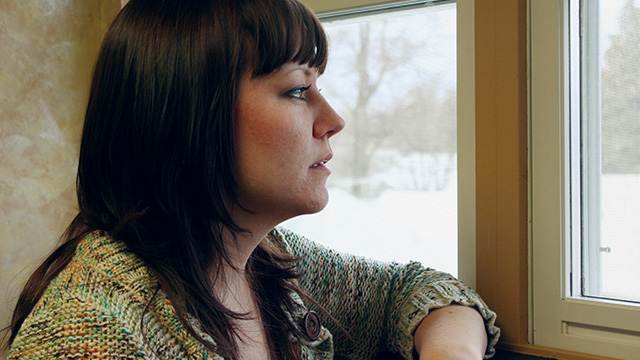
Therapeutically, I would be looking to identify where there might be unresolved grief, trauma or pain, identity issues including false beliefs about self, God and others, and identify fear, spiritual stagnation, resentments, judgments, bitterness and unforgiveness. Therapy would then move into processing through these problems.
If the depression did not show some improvement without medication, that is when I would explore with the client the possibility of getting a psych evaluation for medication options.
How does UGM’s philosophy of whole-person recovery come into play with regard to depression?
LIFE Recovery offers a biopsychosocialspiritual approach, and it is a wonderful opportunity for someone struggling with depression. The psychosocial is addressed in counseling and classes where the client can address the many personal life events that can lead to depression.
The client is also provided support and equipped with necessary services and development of life skills that she may not have acquired growing up. The lack of development and skill building leads to failure in regular life activities such as school, work and relationships. These ladies have the opportunity to develop social, academic and vocational skills – which will lead to a more successful experience in life, reducing depression.
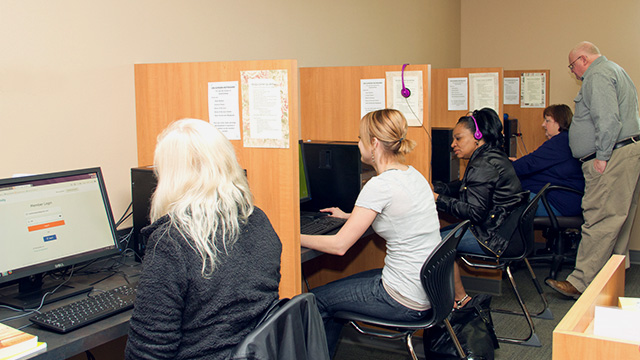
The ladies at the Center also have the opportunity to address depression from a fitness and nutrition angle. Exercise and eating a regular and balanced diet is a significant factor in reducing depression.
Contributing to house chores and responsibilities builds work ethic and teaches our ladies how to be a part of a team. This can lead to conflict, but ultimately leads to increased self-confidence and self-efficacy.
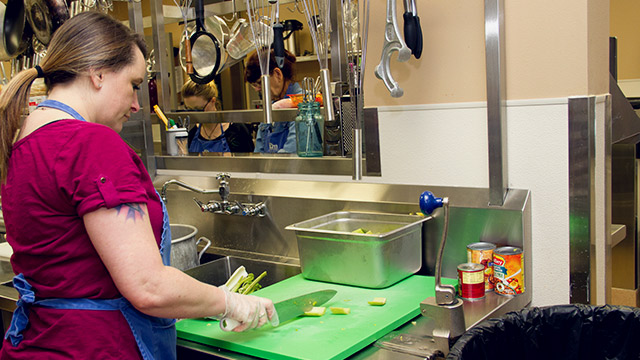
When conflict arises the ladies are encouraged to peacefully resolve the conflict. They are learning and practicing conflict resolution skills, which greatly impacts their sense of healthy power and control—something many of our residents have never had. This is another area of their life where they are increasing self-esteem, confidence and efficacy.
Rediscovering how to learn in VocEd has the effect of increasing self-esteem, confidence and self-efficacy as well as teaching skills for successful job placement, higher education and career.
All these areas of the program are essential in whole-person recovery and in order to sustain recovery. If a client gains healing in the areas of the heart that led to the depression but is still unable or incompetent to do life on life’s terms (because of a lack of training, skills, or development), she is likely to end up unsuccessful and in a depressed state again which often leads to relapse in addiction and even possibly, a completed suicide.
To read and learn more about depression, mental illness, and addiction check out the following:
Is someone you love struggling or dealing with depression? Send them a card to remind them of God's comfort for them.

2 min read
“Let us hold unswervingly to the hope we profess, for He Who promised is faithful…Jesus Christ is the same yesterday, today, and forever.” (Hebrews...

9 min read
To celebrate 75 years of serving the Inland Northwest, we are spending the year remembering our history and the faithfulness that built us and...

2 min read
In 2026, Union Gospel Mission Inland Northwest is approaching our 75th Anniversary! This is a milestone that invites gratitude and reflection, and...
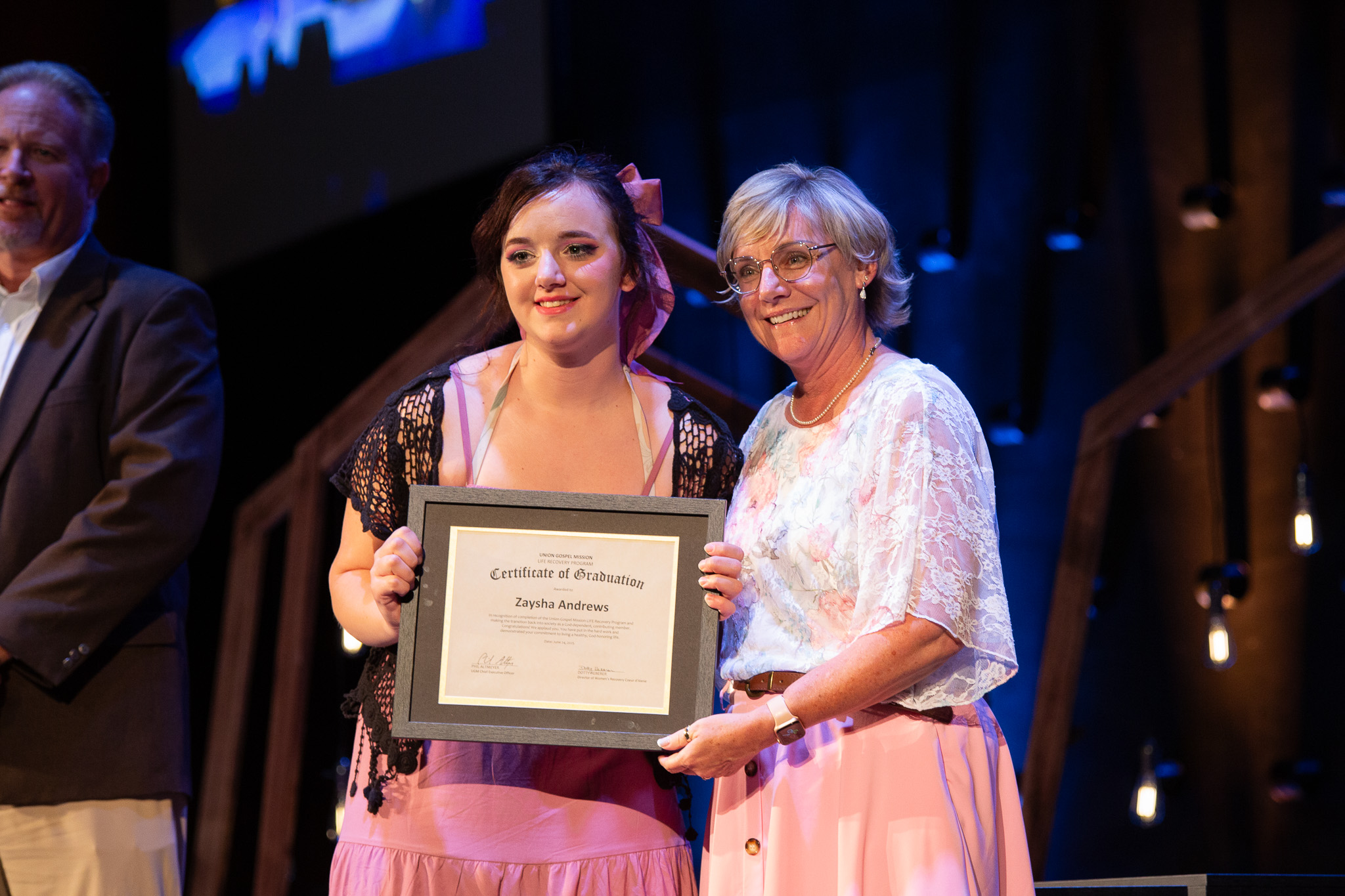
The 2025 Life Recovery commencees have journeyed through deep valleys of struggle and hardship. Yet, with resilience and grace, they have emerged...
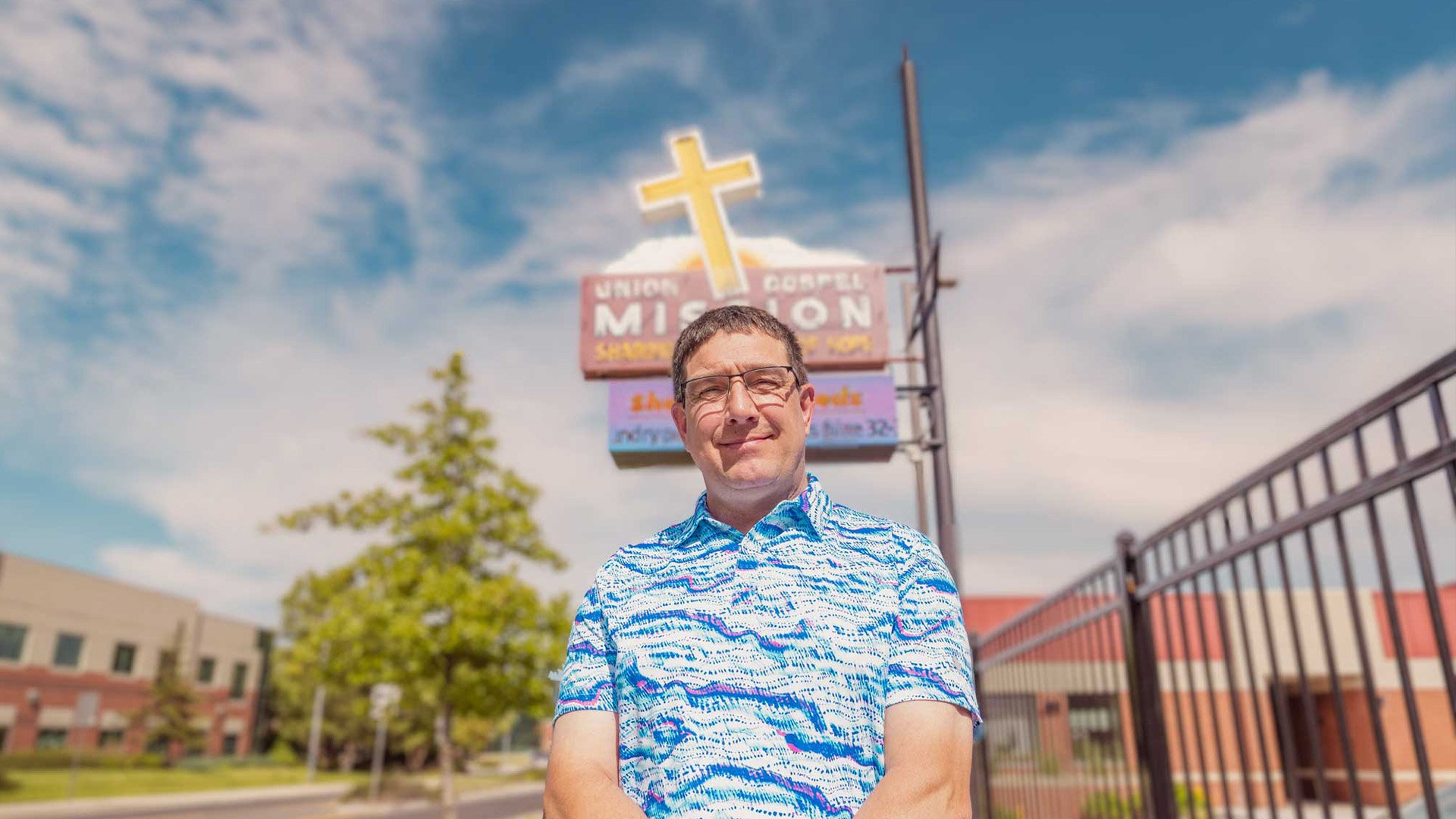
“The enemy got his hooks into me early. I’d been using for roughly 40 years.”

When I say “counseling,” what do you picture? Most of us probably imagine two people in a quiet room, seated in comfortable chairs, talking. You’ve...